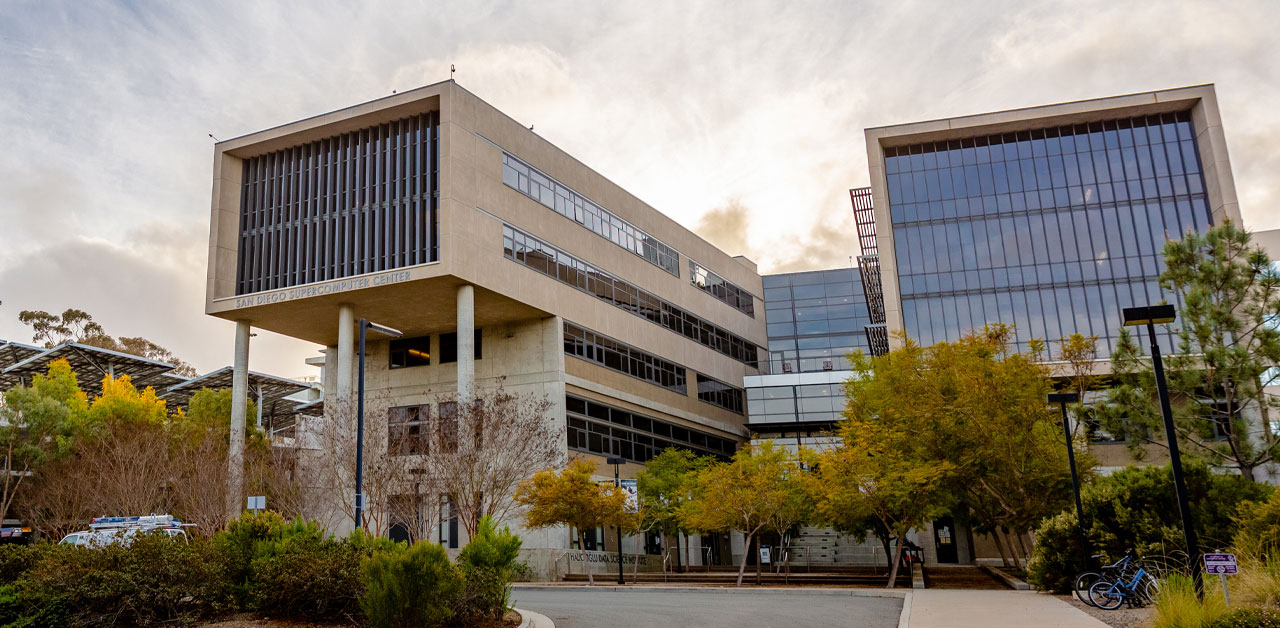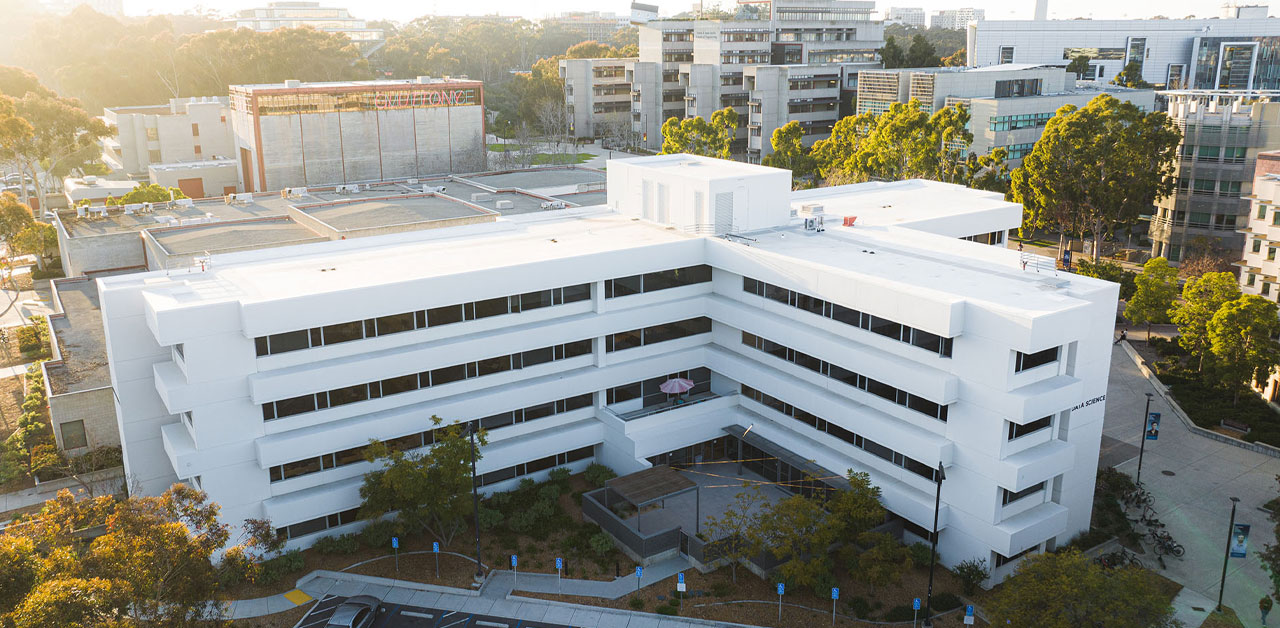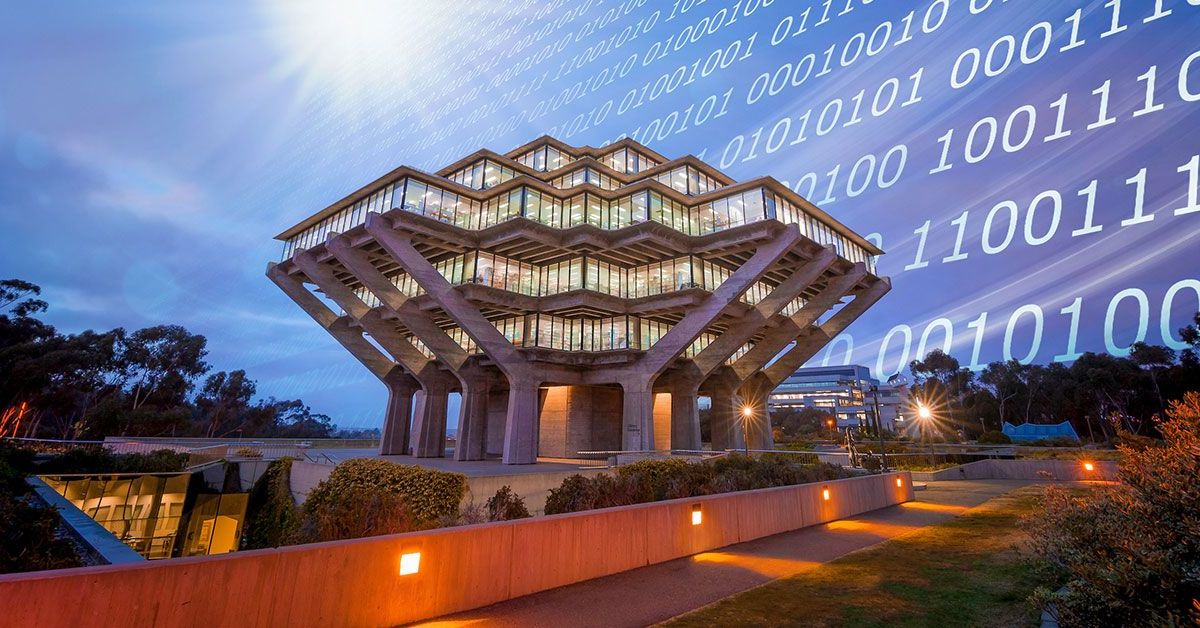UC Regents Approve New School of Computing, Information and Data Sciences at UC San Diego
New school meets critical demand to advance data science and AI innovations and educate workforce of the future
Media contact:
Published Date
Article Content
The University of California Board of Regents has approved the creation of the new School of Computing, Information and Data Sciences (SCIDS) at UC San Diego, a critical advance in UC San Diego’s long history of leading innovation and education in artificial intelligence, computing and data science — disciplines that are rapidly reshaping modern life.
One of 12 schools at UC San Diego — and just the fourth to be added in the 21st century — SCIDS will bring together faculty across disciplines to improve the human condition by better understanding how data shapes society, and to prepare the next generation of highly skilled workers driving artificial intelligence advancements.
“The School of Computing, Information and Data Sciences exemplifies UC San Diego’s commitment to addressing one of the most compelling needs of modern times — transforming data into actionable knowledge,” said Chancellor Pradeep K. Khosla. “Computing and data literacy are key to meeting the needs of students and the state of California, advancing critical research areas like the future of artificial intelligence, and bolstering the university’s mission of public service.”
SCIDS will be enlivened by an anticipated 8,000 students, including many who will come through a robust community college pipeline; and more than 50 faculty across 16 academic disciplines.
The school will play a key role in advancing data science across all disciplines, as well as advancing state-of-the-art computing applications. Additionally, it will serve as a catalyst for increasing collaborations across existing schools, academic departments and disciplines to establish new fields of inquiry.
By translating data science from the classroom to research and the broader workplace, the school will prepare students for their careers by providing opportunities for them to engage directly with industry and government partners, including emergency responders; municipal, state and national resource management organizations; and nonprofits. Students will learn first-hand how data science can allow organizations to better address societal problems ranging from climate change mitigation and social justice issues, to technical challenges and healthcare.
“Pursuing cross-collaborative research opportunities and creating interdisciplinary educational programs are integral parts of the UC San Diego community,” said Executive Vice Chancellor Elizabeth H. Simmons. “The School of Computing, Information and Data Sciences is just the latest example of our commitment to working across disciplines to expand knowledge in a burgeoning field and improve our community and our world. It fits perfectly within our educational structure.”
Foundational Pillars of the New School
The new school combines the strengths of the San Diego Supercomputer Center (SDSC), a national leader in high-performance and data-intensive computing, and the Halicioğlu Data Science Institute (HDSI), a pioneering interdisciplinary institute that advances data science and AI education and research.
Together these resources form the foundational pillars of SCIDS and will position UC San Diego to support the growing demand for data science and computing expertise across the research and educational mission of the university.
As part of a national effort to address a shortage of advanced computing resources, the U.S. National Science Foundation (NSF) established the General Atomics-affiliated SDSC in the 1980s, which transformed academic scientific communities like UC San Diego.
In its 40-year history, SDSC has provided computing resources to a range of domestic stakeholders and federal agencies, state agencies tackling crises like extreme weather and wildfire, and the UC San Diego and the UC system, providing researchers with in-house computational and data resources to accelerate scientific discovery.

“The new school at UC San Diego will grow our impact on society via translational computing, information and data sciences, and bring AI education to community and teaching colleges across California and the nation via our AI infrastructure,” said SDSC Director Frank Würthwein, a founding faculty member of HDSI. “Combining our strengths with those of HDSI optimizes our leadership in innovation for science, technology, education and society.”
UC San Diego’s depth in technology-related domains, anchored by engineering and mathematics, deepened further when the university established HDSI in 2018 with philanthropic support from Computer Science and Engineering Alumnus Taner Halicioğlu.
Educating the next generation of machine learning engineers and data analysts, HDSI brings together an interdisciplinary team of faculty and researchers from areas ranging from computer science to communications to medicine. Working together, these researchers explore new computational methods, new mathematical models and guide societal and ethical impacts of data science.
HDSI, for example, is home to the NSF-funded AI Institute for Learning-Enabled Optimization at Scale (TILOS), which explores AI optimization and advances chip design, networks and contextual robotics.
"HDSI and SDSC share the unique challenge of building transdisciplinary academics and research. Their coming together under SCIDS will involve new synergies and realize tremendous new possibilities in creating talent in emerging areas, including artificial intelligence," said HDSI Director Rajesh Gupta.
UC San Diego’s undergraduate major in data science was first developed and shepherded in 2016 by the Department of Computer Science and Engineering before the degree program’s transfer to HDSI. HDSI graduated its first class of bachelor’s students in 2020, and initiated masters and doctorate programs in 2022. HDSI also offers a minor in data science, with a growing population of students, and it is in the process of launching a joint M.S.-M.D. program with health sciences. Currently, there are 51 faculty appointments in HDSI. Student graduates include 814 bachelor’s students between 2020 and 2024, and 22 master’s students between 2022 and 2024. One Ph.D. student graduated in 2024.

Share This:
Stay in the Know
Keep up with all the latest from UC San Diego. Subscribe to the newsletter today.




